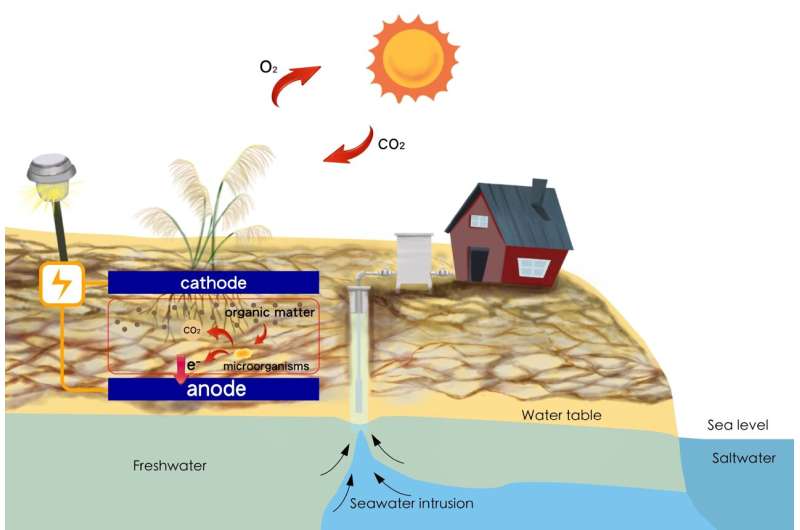Microbial fuel cell (MFC) technology has evolved significantly, showing promise not only in wastewater treatment but also in generating renewable energy. Researchers at National Taiwan University have made strides in this area by developing plant microbial fuel cells (PMFCs) that can produce electricity while reducing greenhouse gas emissions in soils. This breakthrough, detailed in a study published in the Journal of Cleaner Production, highlights the potential of integrating MFC technology with soil and plant systems.
The study addresses the dual challenge of energy generation and carbon reduction, aligning with global efforts to mitigate climate change. PMFCs utilize electrochemically active microorganisms to convert organic matter from both soil and plant photosynthesis into electrical energy. In addition to power generation, the researchers examined the role of these systems in decreasing greenhouse gas emissions from soil, an area of increasing importance in environmental science.
In regions of Taiwan, particularly the southern parts, soil salinization poses a significant threat to agricultural productivity and ecological health. The research team investigated the effectiveness of SMFCs and PMFCs in restoring these salinized soils. Their findings revealed that while SMFCs and PMFCs could successfully generate electricity from normal soils, the performance in salinized soils was initially limited. Notably, the voltage produced by PMFCs increased gradually over several months, indicating potential for long-term viability.
The study offered insights into methane emissions as well, revealing differing impacts of SMFCs and PMFCs in normal versus salinized soils. In normal soils, SMFCs demonstrated superior effectiveness in reducing emissions, while PMFCs were more effective in salinized conditions. Researchers also noted that PMFCs could lower soil conductivity in salinized areas, although the mechanisms behind this effect warrant further exploration.
According to Prof. Chang-Ping Yu, the corresponding author of the study, “Overall, this study demonstrates the application potential of SMFCs and PMFCs in both normal and salinized soils in producing electricity and mitigating greenhouse gas emission.” The ongoing research highlights the importance of sustainable energy solutions and their potential role in tackling environmental challenges.
This innovative approach not only contributes to renewable energy generation but also addresses the pressing issue of greenhouse gas emissions. With further research, PMFCs could emerge as a viable technology for sustainable agriculture and soil restoration efforts, benefiting both ecosystems and energy needs around the world.






























